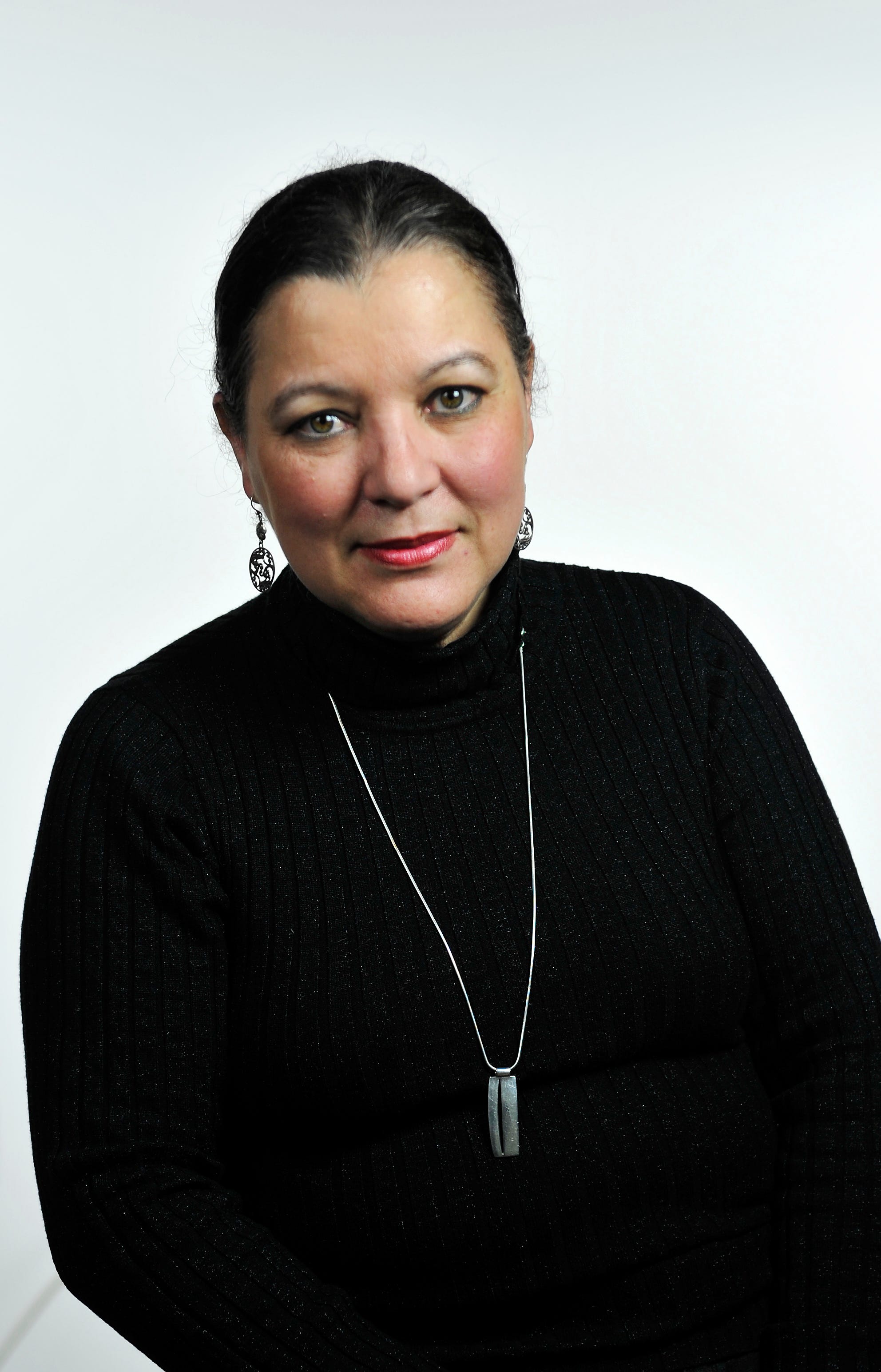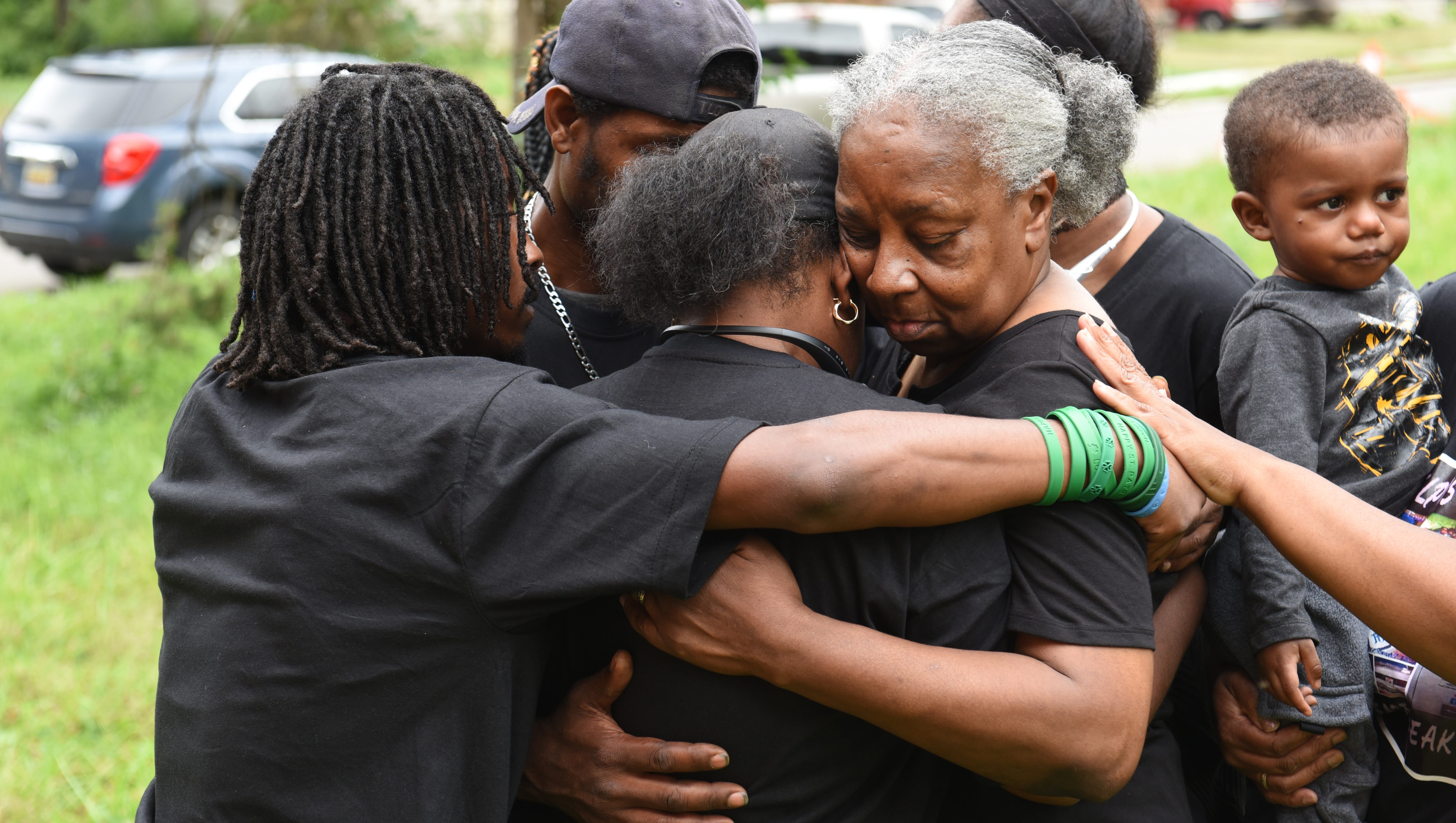Detroit grapples with 'devastating' impact of black male homicides
 Oralandar Brand-Williams
Oralandar Brand-Williams
Lorease Mumford believed as a mother, she had done everything right.
She moved her family from Detroit to a safer suburban neighborhood, sent her son to private school at the University of Detroit Jesuit and, above all, she instilled in him the difference between right and wrong.
But all of Mumford’s safekeeping and parenting weren’t enough to save her son, Steven Hill, from a violent ending nearly two years ago.
Hill, 26, was shot to death Dec. 1, 2016, not far from her former job at Sinai Grace Hospital and his grandparents' home on Detroit's northwest side.
He was approached by two men and shot outside a home in the 17000 block of Snowden shortly after leaving his grandparents' home.
As a certified surgical technologist, Mumford often witnessed the grief of mothers and fathers who lost their children to violence.
“I never thought I would be one of those parents,” she said. “Never, never, ever.”
Mumford is still reeling from the loss of her only son, whose killing remains unsolved. She is not alone.
African-Americans die from homicide at much higher rates than other racial groups, especially in Michigan and its largest city, Detroit, and black men are especially at risk.
The toll on African-American males in the city is relentless, as evidenced by the shooting of three young men, all in their 20s, in the lobby of a White Castle restaurant on Detroit's west side last month.
DeShawn Gadson, 20; Trevaughn Anthony, 24; and Rashawn Harrington, 25. were slain about 12:25 a.m. Sept. 9 inside the restaurant on the 6300 block of West Warren, just west of Livernois, police said.
According to FBI data analyzed this year by the Washington-based Violence Policy Center, there were 7,014 black homicide victims in the United States in 2015. That translates to a homicide rate of 18.68 per 100,000 people among African Americans, compared with an overall rate of 4.62 per 100,000.

Of those 7,014 victims, 88 percent were male. Michigan had the nation's sixth highest rate of black homicide, according to the center's report: 27.04 per 100,000. Of the 388 victims, 345 — 89 percent — were male.
In Detroit, of 312 homicide victims in 2016, 279 were African American; 246 of those black victims -- 88 percent -- were male, according to figures from the Wayne County Medical Examiner's Office. While Detroit’s rate of black male homicide is high -- 97 per 100,000 -- it trails that of Chicago, where the rate is 120 per 100,000.
And for younger African-American males, the numbers are even more startling. As of Aug. 1, 64 African-American men between the ages of 18-35 had lost their lives to gunfire in Detroit, out of 175 homicides in the first seven months of this year, according to figures from the Detroit Police Department.
During all of last year, 107 African-American males in the same age group were killed by gunfire in Detroit, out of 267 total homicides, and in the first seven months of 2016, 133 young black men were shot to death.
Read: Solutions to lower homicide rates elusive
Detroit Police Chief James Craig says while crime in the city has gone down overall, the homicide rate among the city's black male population, especially young people, remains stubbornly high.
"It's not just a Detroit thing," said Craig. "It's a national problem."
Josh Sugarmann, executive director of the Violence Policy Center, says the analysis points to homicide as a "national crisis" for African-Americans. He used the February shooting that killed 17 people at Marjory Stoneman Douglas High School as a point of comparison.
"Each day in America, the number of black homicide victims exceeds the toll in the Parkland, Florida, mass shooting," he said. "And just like Parkland and other mass shootings, these deaths devastate families, traumatize whole communities, and should provoke an outcry for change."

Coleen Farm knows all too well the pain of losing a loved one to senseless violence. Farm's son, Dan Edward Adams Jr., had just turned 20 when he was murdered in July 2012.
Adams never returned from a trip to a nearby store on Detroit's east side.
Another relative and her son’s female friend called Farm to tell her her son had been shot to death. Farm believes her son was an innocent bystander of an argument between other men.
“My heart fell down to my stomach,” Farm recalled. “Our kids are dying at an alarming rate. Does anyone really care? I am angry. I feel like the system failed a lot of mothers. It's heart-wrenching."
Farm said no one has been charged in her son's murder.
That's an all-too-common outcome in Detroit, where the arrest rate for homicides is 48 percent, up from 37 percent in 2013 and close to the national average of 50 percent, according to a recent Washington Post report.
Andrea Clark, the head of the Detroit-based organization Mothers of Murdered Children, is among the African-American parents seeking closure after losing a son to violence.
Her 30-year-old son, Darnell Perkins, was shot to death by security officers in 2011 during an altercation outside a downtown Detroit nightclub. He left behind four children who are being raised by his wife.
“Do you realize (the victims) have sisters and brothers and parents?” Clark said of the shootings in Detroit.
No charges were filed in Perkins' death because the Wayne County Prosecutor's Office ruled it was a justifiable homicide, Clark said.
The interim director of a New York-based coalition of groups fighting for "common sense gun policies" said the Violence Policy Center report points to a crisis that requires urgent action.
“The daily toll of gun violence in communities of color is a major failing by our elected officials and society," said Nick Wilson of States United to Prevent Gun Violence. "No one law is going to end gun violence in America, but this report demonstrates the urgency to research and address why black men are needlessly dying at such elevated rates.
"In addition to closing loopholes in our current gun laws, we must invest in community-based prevention and collaborative policing programs," he said.
Detroit's police chief points to historic socioeconomic problems plaguing black communities such as poverty, joblessness, lack of opportunity and lack of stable male role models for the high homicide rate among African-American males.

The unemployment rate in Detroit, which is nearly 80 percent black, was 10.9 percent in July 2018, compared with the national average of 3.9 percent, according to the federal Bureau of Labor Statistics. According to the Census Bureau, nearly 40 percent of the city's residents live in poverty.
MSU sociologist Carl Taylor, who has studied violence and gangs in Detroit, says there are many levels to the problem but it comes down to one basic observation: "Black life is not valued."
Taylor, who grew up in Detroit during the 1960s and now lives in the Lansing area, said youngsters are growing up in a city from different from the Detroit of his youth. Drugs were not plentiful or easily accessible as they are today, and residents have become desensitized to violence. Taylor said the closing of dozens of the city's public schools is also a factor.
"The violence is normalized," Taylor said. "It's the normalization of ignorance and violence."
bwilliams@detroitnews.com
(313) 222-2027